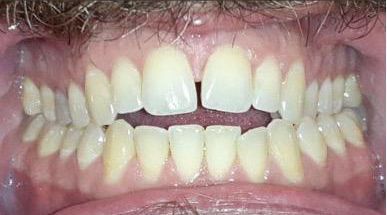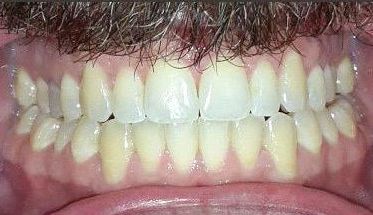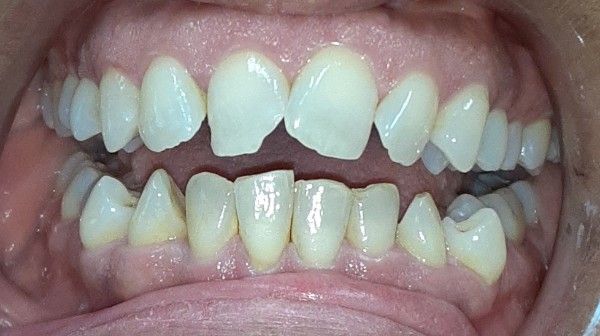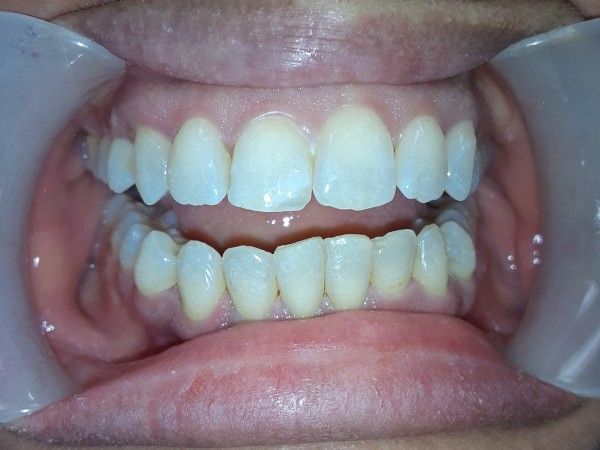Wisdom Tooth Extraction in Arlington Heights, IL
Special Offer
$149 New Patient Special*
Includes a Comprehensive Exam, X-Rays, a Standard Cleaning and a Fluoride Treatment
*In absence of gum disease
Schedule My Appointment
WisdomTooth Form
Protect Your Oral Health by Removing Wisdom Teeth
We are committed to providing you with comprehensive dental care for your long-term health. Wisdom teeth removal is one of our most popular procedures. It helps to prevent a variety of dental problems. Third molars or wisdom teeth usually appear in the late teens or early 20s. These teeth can lead to complications, such as pain, infection, or overcrowding.
Our team is located in
Arlington Heights, IL,
and led by
Dr. Sukhjinder Thind.
They are highly skilled in safe and effective extractions of wisdom teeth to protect your oral health and smile. We can help if you're experiencing pain or were told to remove your wisdom teeth.
What Are Wisdom Teeth?
The wisdom teeth are the final set of molars that emerge. They usually appear between 17 and 25 years old. Many people have problems because of the limited space available in their mouths. If there is not enough space for the molars in your mouth to grow, they may become impacted. This means they grow below the gumline or at an angle.
Impacted wisdom teeth can cause pain, damage to the adjacent teeth, and other oral health problems such as cysts and infections. Even correctly positioned wisdom teeth can cause problems if they're difficult to clean. This increases the risk of gum disease and decay.
Why Might Wisdom Teeth Need to be Removed?
Your dentist may recommend wisdom tooth removal for several reasons:
- Impacted Wisdom Teeth: Impacted wisdom teeth can cause pain, swelling, infection, and damage to adjacent teeth.
- Overcrowding: Wisdom teeth may cause crowding and affect your bite by pushing other teeth into an unnatural position.
- Cavities & Decay: Wisdom teeth are at the back of your mouth and, therefore, harder to clean. This can lead to gum disease or cavities.
- Infections & Cysts: If your wisdom tooth is partially erupted or trapped under the gum line, this can lead to an environment that encourages bacteria, causing infections and cysts that damage nearby teeth and bone.
Wisdom teeth can cause serious problems in the future. By removing them before they do, you can maintain your oral hygiene and avoid more serious problems.
Wisdom Teeth Removal Process
Our team at Definite Dental Solutions takes a patient-centered, informed approach to wisdom tooth removal. We want you to be comfortable and confident every step of your journey. What to expect:
Consultation
Dr. Sukhjinder Thind will examine your wisdom teeth with digital X-rays in order to determine their position and potential problems.
Anesthesia
To make sure you're comfortable during the entire procedure, we use local anesthesia. For more complex cases, sedation may be recommended to help you relax.
Extraction
After you have been numbed or sedated by a dentist, Dr. Sukhjinder Thind makes a small incision in the gums to reach the tooth. The tooth is gently removed, and the area is cleaned to minimize the risk of infection. In some cases, stitches may be required to close the extraction area.
Postoperative Care
After the procedure, we will give you detailed instructions about how to take care of the extraction site. We'll also provide recommendations on managing pain, swelling, and diet changes. Most patients will recover in a few days, depending on how complex the extraction was.
Watch This Video About Dr.Sukhjinder Thind
Aftercare and Recovery
It is important to take the right aftercare measures in order to achieve a comfortable and smooth recovery. We recommend:
- Managing Swelling and Pain:
Ice packs and over-the-counter pain relief can reduce swelling and manage discomfort.
- Soft Diet: Avoid irritating the extraction site by sticking to soft foods such as yogurt, applesauce, and soups during the first few days.
- Keep Area Clean:
Rinse your mouth gently with warm salted water after 24 hours to keep the area clean. Do not brush the extraction site until it is healed.
Are You in Need of Wisdom Teeth Removal?
It may be necessary to evaluate your wisdom teeth if you are experiencing discomfort, pain, or swelling in the back part of your mouth. We will assess your situation at Definite Dental Solutions and determine what is best for your oral health. It's better to have your wisdom teeth removed early, even if they aren't yet causing you any problems.
Book a Consultation Now
We put your health and comfort first at Definite Dental Solutions. Call us to learn more about the removal of wisdom teeth and schedule a consultation. We can help you avoid future dental problems and maintain a healthy smile for many years.
Frequently Asked Questions
What Are Wisdom Teeth?
Wisdom teeth are the third set of molars, usually emerging between the ages of 17 and 25. Most people have four—two on the top and two on the bottom—but some may have fewer or none at all.
Why Do Wisdom Teeth Need to Be Removed?
Wisdom teeth are often removed when they:
- Become impacted (trapped under the gums or bone)
- Grow in at an angle or crowd other teeth
- Cause pain, swelling, or infection
- Lead to cysts or damage to nearby teeth
Even if they're not currently painful, preventive removal is sometimes recommended to avoid future complications.
What Are the Signs That I Need a Wisdom Tooth Extraction?
Common symptoms include:
- Jaw pain or pressure
- Swollen or bleeding gums
- Difficulty opening your mouth
- Headaches or earaches
- Bad breath or unpleasant taste
However, some issues are only visible on X-rays, so regular checkups are important.
What Happens During the Procedure?
Your dentist or oral surgeon will:
- Numb the area with local anesthesia
- Provide sedation if needed for comfort
- Gently remove the tooth (sometimes in pieces)
- Close the site with sutures, if necessary
The procedure typically takes less than an hour, and you’ll go home the same day.
Is Wisdom Tooth Extraction Painful?
The procedure itself is not painful, thanks to anesthesia. You may experience some soreness, swelling, and mild discomfort afterward, but this can be managed with medication, rest, and cold compresses.
How Long Is the Recovery Time?
Most patients recover in 3 to 5 days, though full healing may take 1–2 weeks. You’ll want to rest, avoid strenuous activity, and follow aftercare instructions to heal quickly and avoid complications.
What Should I Eat After My Wisdom Teeth Are Removed?
Stick to soft foods for the first few days, such as:
- Yogurt
- Mashed potatoes
- Applesauce
- Smoothies
- Soup (not too hot)
Avoid crunchy, spicy, or chewy foods that could irritate the extraction site.
What Is Dry Socket and How Can I Avoid It?
Dry socket occurs when the blood clot at the extraction site becomes dislodged, exposing the bone and nerves. It can be very painful. To prevent it:
- Don’t smoke or use straws
- Avoid forceful spitting or rinsing
- Follow your dentist’s aftercare instructions closely
Will I Need Someone to Drive Me Home?
Yes—if you receive oral or IV sedation, you’ll need a responsible adult to drive you home and stay with you for a few hours after surgery.
Is Wisdom Tooth Removal Covered by Insurance?
Many dental insurance plans partially or fully cover wisdom tooth extractions, especially if they’re medically necessary. Our office can help you understand your coverage and offer financing options if needed.
What if My Wisdom Teeth Aren’t Causing Problems? Should I Still Have Them Removed?
Not always—but in many cases, wisdom teeth can lead to issues later on, even if they’re not currently painful. Your dentist will evaluate your teeth with X-rays and discuss whether preventive removal is the best option for you.








